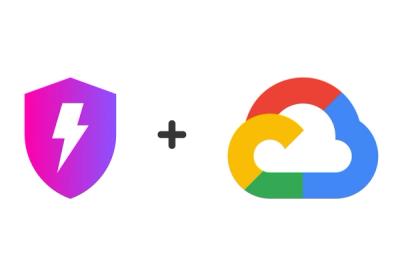
Security News
High Salaries No Longer Enough to Attract Top Cybersecurity Talent
A survey of 500 cybersecurity pros reveals high pay isn't enough—lack of growth and flexibility is driving attrition and risking organizational security.
@cdklabs/aws-lambda-rust
Advanced tools
The APIs of higher level constructs in this module are experimental and under active development. They are subject to non-backward compatible changes or removal in any future version. These are not subject to the Semantic Versioning model and breaking changes will be announced in the release notes. This means that while you may use them, you may need to update your source code when upgrading to a newer version of this package.
This library provides constructs for Rust Lambda functions.
The rust.RustFunction construct creates a Lambda function with automatic building and bundling of Rust code.
To use this module you will either need to have cargo-lambda installed or Docker installed.
See Local Bundling/Docker Bundling for more information.
.
├── my-construct.ts
├── myconstruct.my_function
│ ├── Cargo.toml
│ └── src
│ └── main.rs
By default, the construct will use the name of the defining file and the construct's id to look up the entry file by following this pattern defining-file.id/Cargo.toml. In my-construct.ts above we have:
const myFunction = new rust.RustFunction(this, "my_function");
Alternatively, entry and binaryName properties can be specified to override this default behavior. If no binaryName argument is passed in, it will default to the package name as defined in the main Cargo.toml.
new rust.RustFunction(this, "my_function1", {
entry: '/path/to/directory/with/Cargo.toml',
binaryName: 'my_function'
});
// You can also specify entry path directory which will contain your Cargo.toml file
new rust.RustFunction(this, "my_function2", {
entry: '/path/to/directory',
binaryName: 'my_function'
});
For more complex project structure combining multiple Rust Lambda function, the construct offer the ability to use Binaries or Workspaces defined in your Cargo project.
Given a sample project structure:
.
├── Cargo.toml
├── my_lambda_1
│ ├── Cargo.toml
│ └── src
│ └── main.rs
└── my_lambda_2
├── Cargo.toml
└── src
└── main.rs
And with a given Cargo.toml:
[workspace]
members = [
"my_lambda_1",
"my_lambda_2"
]
Rust functions can be declared using binaryName property:
new rust.RustFunction(this, 'FirstFunction', {
binaryName: 'my_lambda_1',
});
new rust.RustFunction(this, 'SecondFunction', {
binaryName: 'my_lambda_2',
});
When bundling the code, the rust.RustFunction runs will build and bundle your binary by passing --release and --target flags to the Cargo build command, so it compiles for a Lambda environment - which defaults to the aarch64-unknown-linux-gnu target.
cross for DeploymentIf you instead prefer to use Docker and Cross for deployment, as outlined
in the official AWS docs, you can define the packageManager property:
new rust.RustFunction(this, 'FirstFunction', {
binaryName: 'my_lambda_1',
bundling: {
packageManagerType: rust.PackageManagerType.CROSS
}
});
All properties of lambda.Function can be used to customize the underlying lambda.Function.
See also the AWS Lambda construct library.
By default, Cargo Lambda uses the Zig toolchain to cross compile your code. This is the most convenient cross compilation mechanism because it comes built in, and it works for the majority of use cases. Any pure Rust Lambda function should compile correctly with this toolchain.
By default, Construct will compile the code for Linux X86-64 architectures, but you can compile for ARM-64 architectures by providing the right property if needed:
import { Architecture } from 'aws-cdk-lib/aws-lambda';
new rust.RustFunction(this, 'my_function', {
architecture: Architecture.ARM_64
});
If bundling is made locally for ARM-64 or X86-64, make sure to install the dedicated target:
rustup target add aarch64-unknown-linux-gnu
rustup target add x86_64-unknown-linux-gnu
To force bundling in a Docker container even if Zig toolchain is available in your environment, set bundling.forceDockerBundling to true.
Use bundling.environment to define environments variables when cargo runs:
new rust.RustFunction(this, 'my_function', {
bundling: {
environment: {
HELLO: 'world'
},
},
});
Use the bundling.buildArgs to pass build arguments to cargo:
new rust.RustFunction(this, 'my_function', {
bundling: {
extraBuildArgs: ['--all-features'],
},
});
Use the bundling.dockerImage to use a custom Docker bundling image:
new rust.RustFunction(this, 'my_function', {
bundling: {
dockerImage: DockerImage.fromBuild('/path/to/Dockerfile'),
},
});
You can set additional Docker options to configure the build environment:
new rust.RustFunction(this, 'my_function', {
bundling: {
network: 'host',
securityOpt: 'no-new-privileges',
user: 'user:group',
volumesFrom: ['777f7dc92da7'],
volumes: [{ hostPath: '/host-path', containerPath: '/container-path' }],
},
});
It is possible to run additional commands by specifying the commandHooks property.
The following hooks are available:
They all receive the directory containing the lock file (inputDir) and the directory where the bundled asset will be output (outputDir). They must return an array of commands to run. Commands are chained with &&.
The commands will run in the environment in which bundling occurs: inside the container for Docker bundling or on the host OS for local bundling.
FAQs
<!--BEGIN STABILITY BANNER-->
We found that @cdklabs/aws-lambda-rust demonstrated a healthy version release cadence and project activity because the last version was released less than a year ago. It has 0 open source maintainers collaborating on the project.
Did you know?

Socket for GitHub automatically highlights issues in each pull request and monitors the health of all your open source dependencies. Discover the contents of your packages and block harmful activity before you install or update your dependencies.

Security News
A survey of 500 cybersecurity pros reveals high pay isn't enough—lack of growth and flexibility is driving attrition and risking organizational security.

Product
Socket, the leader in open source security, is now available on Google Cloud Marketplace for simplified procurement and enhanced protection against supply chain attacks.

Security News
Corepack will be phased out from future Node.js releases following a TSC vote.